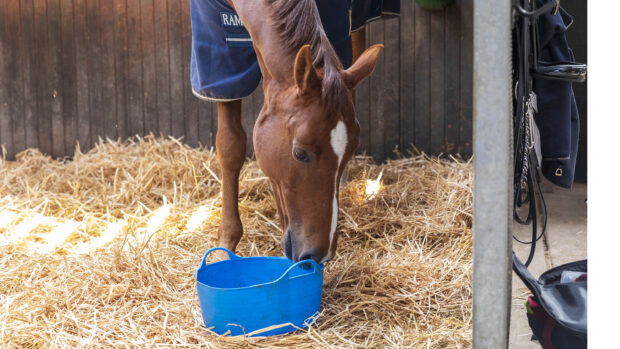A move to enshrine animal sentience in law moved a step closer amid mixed reactions from MPs and lobbyists.
The Animal Welfare (Sentience) Bill, which completed its House of Lords stages in December 2021, passed its second Commons reading yesterday (18 January). This means it is a step closer to becoming law, passing now to the committee stage.
The short bill, which is only six clauses long, recognises that animals are sentient beings and would create a body to oversee UK ministers’ efforts to take account of their welfare needs when drawing up and implementing policy.
The bill sparked cross-party debate in Parliament yesterday, not over whether or not animals are sentient beings, but rather the bill’s wording, the scope of the “committee” that would be created, and the concern that this could be “hijacked” by animal rights activists.
These mixed views have also been echoed outside the chamber, with the Countryside Alliance voicing concerns, while welfare organisations have broadly welcomed the bill.
George Eustice, secretary of state for the environment, food and rural affairs, opened the debate.
“Every piece of animal welfare legislation passed by this house since 1822 has implicitly recognised the sentience of animals,” he said.
“During the European Union era, the UK was a signatory to article 13 of the Lisbon treaty, which offered a form of legal recognition of the sentience of animals. Although that did not really mean very much, we believe we can now do better through this Bill.
“How we treat animals, and the legislation we have to govern animal welfare, is a hallmark of a civilised society. We should be constantly looking to improve and refine our legislation in this area. That is why the Government has committed to introducing this new law on animal sentience.”
He explained that the bill proposed four things. These are establishing an animal sentience committee, appointed by the secretary of state on the basis of expertise and experience. It tasks that committee with scrutinising ministers’ policy formation, and will publish a report in each instance containing its views on whether ministers have had all due regard to the welfare needs of animals as sentient beings.
It will also hold ministers to account through a “duty to respond to the committee’s reports” within three months. It also offers recognition that non-human vertebrates and decapod crustaceans are sentient, meaning they are capable of experiencing pain and suffering.
Mr Eustice added that the committee’s reports will not bind ministers to any particular course of action.
‘What is there to gain?’
Sir Geoffrey Clifton-Brown, Conservative MP for the Cotswolds, described the lack of definition of what sentience means as “concerning”.
“The bill could deliver another weapon into the hands of litigious animal rights groups that could damage both Government and those who live and work with animals,” he said.
“We need to make sure that the animal sentience committee set up by the bill does not have any unforeseen or perverse consequences, and that the bill is not introduced simply as a public relations exercise to meet the demands of activist groups and the tabloids.”
He also questioned how the new committee would work, in relation to the existing animal welfare committee, which he added “was established decades ago and works perfectly well”.
“Policy and legislation should always be science and evidence-based. It is extraordinary that there is no definition of sentience in the bill,” he added.
“In conclusion, clarity, clarity, clarity is required on animal welfare advice in Government. I am talking about the composition and remit of the committee, the balance between the public interest and sentience, and assurances that legal activities, such as research, farming and country sports, will not be damaged by the bill.”
Jonathan Djanogly, Conservative MP for Huntingdon, said: “While everyone knows what animal welfare is and values what the bill is intended to do, nothing in it, and no one, can either define animal sentience or say how it is measured.
“As a result, the phrase becomes a kind of forerunner of what science may, but does not yet, tell us. The bill is effectively a statement of direction, but does not quite know where to start or where it will finish. It does not define animal sentience, so ministers will have no gauge to work against. As a result, we legislators are in effect being asked to vote blind on it. The new committee will accordingly have to make things up as it goes along.”
Mr Djanogly added that various lobbyists will push the committee towards “reviewing everything they see as being important to their various causes”, and if it does not produce “enough” reports, it will be attacked for inaction. Yet if it produces too many, it will be attacked for exercising power without democratic oversight or care for costs.
He said the Government, too, will be attacked for inaction or action in a similar manner.
“In effect, whichever way one looks at the proposals, they are fraught with problems on every side,” he said.
“One has to wonder why we are doing this. What is there to gain from the bill other than some short-term, soft publicity because it is somehow about being nice to animals?
“I predict that the bill will: complicate many rural activities, add complexity and require legal opinions and court appearances and add cost and bureaucracy. Despite the bill being welcomed by the opposition, it is, to my mind, a poor piece of legislation.”
Kerry McCarthy, Labour MP for Bristol East, shared her support for the bill, adding it is “important to get the concept of animal sentience on record”.
Emma Hardy, Labour MP for Kingston upon Hull, voiced support of the bill, while sharing Mr Mr Djanogly’s concerns about how the composition of the committee will be ascertained, how independent it will be from Government and what powers it will have.
‘Needs power to roam’
Equine vet Neil Hudson, Conservative MP for Penrith and the Border, said the bill will be “so important in recognising animal sentience in UK legislation”.
“Although I welcome the bill, I very much recognise the contributions from opposition members who say that we need to be clearer on some of the details and specifics. I recognise that, by definition, this is a brief and general overarching Bill, which is probably quite sensible,” he said, adding “that said”, he would “very much like it to define the term ‘sentience’ in some way”.
“I very much welcome the formation of the animal sentience committee, but we need to be clear about its independence and to make sure that it has strong expertise and experience in animal welfare, animal health and veterinary matters,” he said.
“It needs to have some teeth and some power, including power to roam across Government. I am very glad that the committee will be based in Defra; although I want it to have a roaming feature, I am more comfortable with it being in the department that is the custodian for animal health and welfare, which I think makes a lot of sense.”
Jo Churchill, parliamentary under-secretary of state for environment, food and rural affairs, confirmed that the animal sentience committee will be classified as an expert committee, funded from Defra’s existing budget and supported by a small secretariat.
“I was asked how sentience is defined in the bill. Our scientific understanding of sentience has come a long way in recent years, but it is well defined and continues to evolve,” she said.
“The situation will carry on evolving, so it would seem to be counter-intuitive to have a fixed definition, because the definition itself is not fixed. We therefore do not deem it necessary to define sentience for the work going forward. We can all recognise that animals are sentient and their welfare should be considered in any decisions we make.”
She concluded that the bill offers a “proportionate and evidence-led recognition of animal sentience in UK law” and that there is “overwhelming public demand for sentience legislation”.
You might also be interested in:

Welcome step for welfare as new UK law to formally recognise animal sentience
“The UK has always led the way on animal welfare and now that we’ve left the EU we are free

Subscribe to Horse & Hound magazine today – and enjoy unlimited website access all year round

Cost of living squeeze: what it means for horse owners and equestrian businesses

Owner warning: risk of fatal disease increases if wrong wormer used

‘Pay or give up’: fears over plans to charge owners to visit their animals under clean-air rules
Horse & Hound magazine, out every Thursday, is packed with all the latest news and reports, as well as interviews, specials, nostalgia, vet and training advice. Find how you can enjoy the magazine delivered to your door every week, plus options to upgrade your subscription to access our online service that brings you breaking news and reports as well as other benefits.



